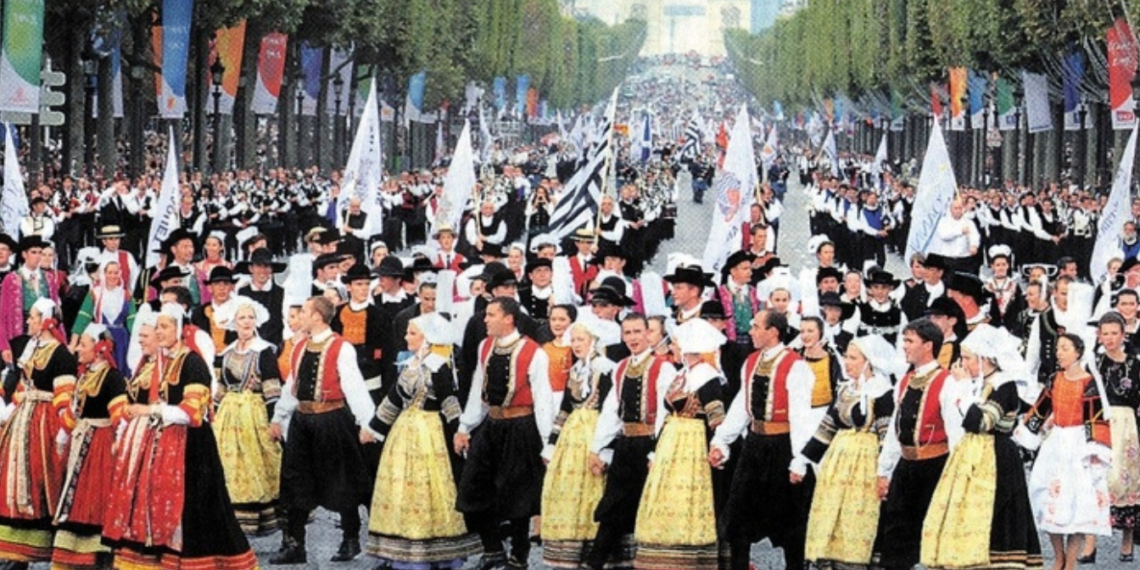Ever wondered what living “à la française” truly means? France is a place full of rich history and beautiful art. It has a special spirit called ‘joie de vivre’. This guide will show you the unique ways of French life. We’ll look at how they greet each other, the customs they follow, their deep history, and more. Join me in exploring the heart of French living and traditions.
In France, social rules are important. Shaking hands is considered an art. And, cheek-kissing is like a silent language. We will look at the fine details of French culture, French customs, traditions, and etiquette.
From the arts to the way they greet people, there’s much to learn. We are going to look at their history, arts, cuisine, wine, fashion, language, and literature. Exploring these aspects will give us a deep insight into France. Let’s dive in and discover what makes French culture unique.
Key Takeaways
- Discover the rich history and cultural significance of French traditions and customs
- Explore the diverse regional influences that shape the French way of life
- Understand the importance of etiquette and social protocols in French society
- Appreciate the deep-rooted connections between French cuisine, wine, and cultural identity
- Uncover the influential role of art, fashion, and literature in French culture
France keeps many secrets about its unique lifestyle. Are you ready to explore the details of French culture with me? Let’s uncover its charm and uniqueness together.
French Language and Cultural Identity

The French language is more than a way to talk. It is a source of pride and key to France’s identity. French shows the country’s deep history, its former power, and the minds of its people.
Cultural Symbolism
It’s everywhere, from schools to ads. Language represents France’s long culture and is protected by the Académie Française. This group has guarded French since 1635.
Preservation and Promotion
France works hard to keep its language pure. It does this through its schools and by encouraging French media. These efforts reach far, even to its far-off territories.
Global Reach
French is spoken around the world, making it a big language internationally. It’s official in many places and used by groups like the UN. So, French helps join different cultures and encourage peace.
| Statistic | Data |
|---|---|
| Number of castles and fortresses in France | Over 40,000 dating from the 9th to 21st centuries |
| Official languages recognized by the United Nations | French is one of the six official languages |
| Regional dialects in France | Around 75, including Occitan, Breton, Basque, Corsican, Alsatian, and Créole |
| Year the French Constitution recognized regional languages | July 2008 |
| Year the Académie Française was founded | 1635 |
“Language is a bridge to global understanding, connecting cultures and fostering empathy.”
Traditions and Customs in France
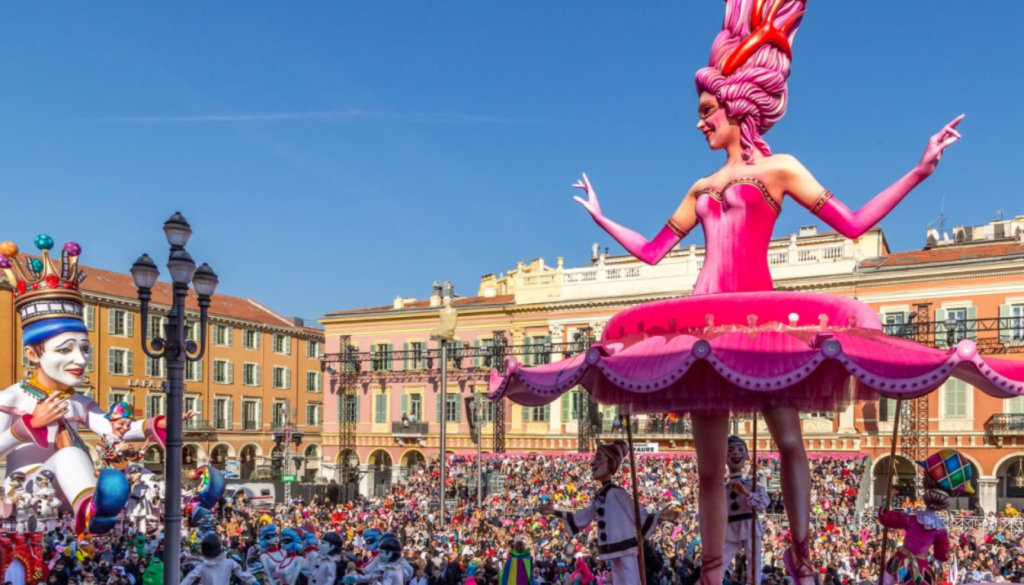
France’s history is a blend of many cultures, like Gallo-Roman and Celtic. Other influences include Germanic tribes, Viking invaders, and Italian Renaissance. It was also shaped by Arab-Islamic culture and later, by African, Caribbean, and Asian communities.
Not forgetting the Jewish impact on French culture, such as in literature, philosophy, and food. This mix of heritages has given France a unique charm. It draws people to explore its rich traditions.
French cuisine shines, offering a variety across its regions. Take Normandy, known for its seafood and dairy delights, or Burgundy, famous for Boeuf Bourguignon.
French people love their cultural traditions. Eating together is a highlight, whether with immediate family or extended relatives. They also prefer local products and entertainment, like Asterix and Obelix, over global options.
The link between France’s traditions and its past is strong. They show a firm commitment to their unique culture. This includes famous customs like the double-cheek kiss and their love for the French language.
“French culture values local products over foreign ones, seen in preferences such as Asterix and Obelix Village over Euro Disney for family entertainment.”
Festivals and Celebrations

France is famous for its lively festivals that display its deep cultural roots. From Bastille Day to the Cannes Film Festival, each celebration offers insight into French life. They bring joy to both locals and tourists.
Bastille Day (14th July)
Bastille Day is like France’s “4th of July.” It remembers the day the Bastille fortress was taken during the French Revolution. Everywhere, there are big parties, parades, and fireworks. In Paris, music fills the air and laughter rings out as people celebrate their country and its ideals.
Cannes Film Festival
The Cannes Film Festival shines a spotlight on France’s French Riviera. Celebrities and movies are the stars on the red carpet. Besides movies, it highlights fashion. The event buzzes with excitement and dreams as it awards the prestigious Palme d’Or.
Tour de France
The Tour de France is more than just a cycling race; it’s a beloved tradition. Over three weeks, it shows off beautiful France, including its Alp roads. Spectators line up to cheer and catch gifts from the “caravane.” This event shows France’s love for sports and its scenic beauty.
Lyon Festival of Lights (Fête des Lumières)
The Lyon Festival of Lights is on December 8th. It turns the city into a beautiful place with lights. From projections to candles in windows, the sight is magical. People from all over Europe come and experience this special celebration.
Festival d'Avignon
The Festival d’Avignon is a top event in the scenic Avignon. It first started in 1947 and features shows like plays and dance. Held at Palais des Papes, this festival is a treat for art fans worldwide.
“France is a country where the important things in life are celebrated as a community.” – Anonymous
French Gastronomy
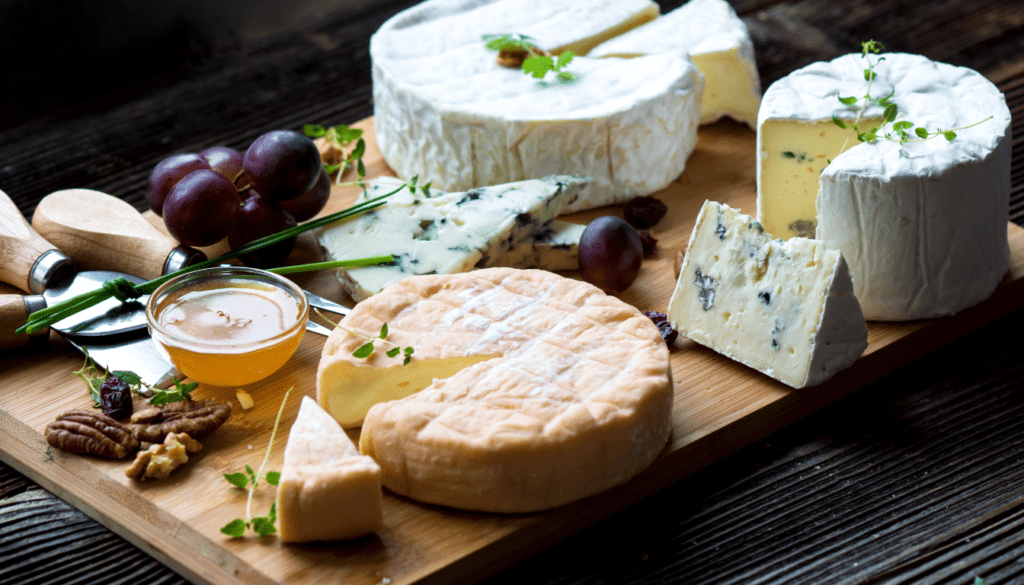
French cuisine is at the heart of traditional French culture. It has a history going back to medieval times. Over time, it has evolved and become known for its elegance and artistry.
In the late 1800s and early 1900s, French food went through a period where it got even better. This made it loved around the world after the wars ended.
Today, French food is all about celebrating the differences in each region. It uses high-quality ingredients and special cooking methods. For example, you’ll find delicate pastries in Paris and hearty stews in the South.
This cuisine not only affects local communities but also influences food worldwide. The way the French care about the look, taste, and feel of food has changed how we all think about cooking. The French art de vivre, or lifestyle, is clearly seen in their food and has set a high standard globally.
“French cuisine is a triumphant result of our history, our geography, and our way of life.” – Julia Child, American chef and author
The French are very proud of their food traditions. They work hard to keep old cooking methods and ingredients alive. Things like the famous baguette and many types of cheese show their love for quality food.
- French meals usually have four courses: a starter, a main dish with fish or meat, cheese, and dessert.
- They carefully choose and prepare their meals, often from local markets or fairs.
- Preparing meals together as a family is common in France. This helps pass down cooking knowledge and traditions.
- French dining is an experience for all the senses, making meals memorable in every way.
As more people around the world enjoy French food, the traditions stay strong. It shows how important enjoying good food together is.
Fashion and Art
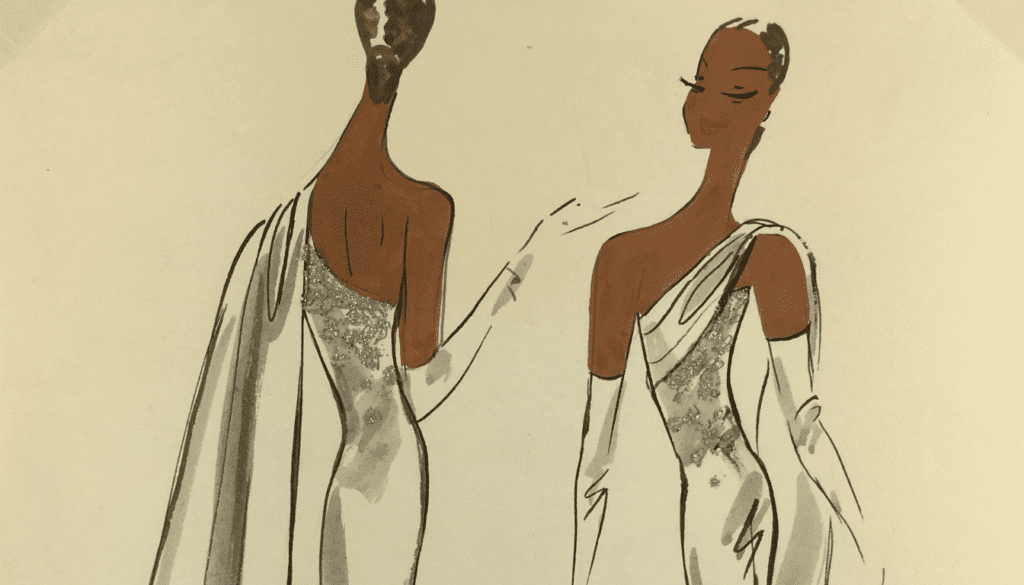
France is highly regarded for its global influence on fashion and art. Its rich culture and artistic traditions have deeply affected trends and discussions worldwide. From the exquisite couture houses in Paris to the lively art scenes across the country, French creativity has set high standards in style and art.
The French fashion industry shines with brands like Louis Vuitton, Chanel, and Dior, known for their elegance. These brands lead globally and shape French style, known for its timeless beauty. The phrase “haute couture” is protected in France, showing the nation’s commitment to its fashion roots.
France’s art scene is celebrated, with the Louvre in Paris as a global cultural icon. It houses work by artists like Claude Monet and Pablo Picasso, influencing art globally. The nation’s cultural schools, like the Académie des Beaux-Arts, support and inspire new generations of artists.
“French style is not just about fashion; it’s a way of life, a mindset that embraces simplicity, elegance, and a certain je ne sais quoi.”
France’s cultural impact extends past fashion and art into daily life. French people value quality and detail, seen in everything from fashion to cuisine. This approach to life, known as “l’art de vivre à la française,” is admired worldwide, confirming France as a global cultural leader.
In final words, France’s role in fashion and art evidences its dedication to creativity and tradition. From iconic fashion to invaluable art, France’s cultural contribution is immense. It stands as a model of artistic brilliance and elegance.
French culture and customs
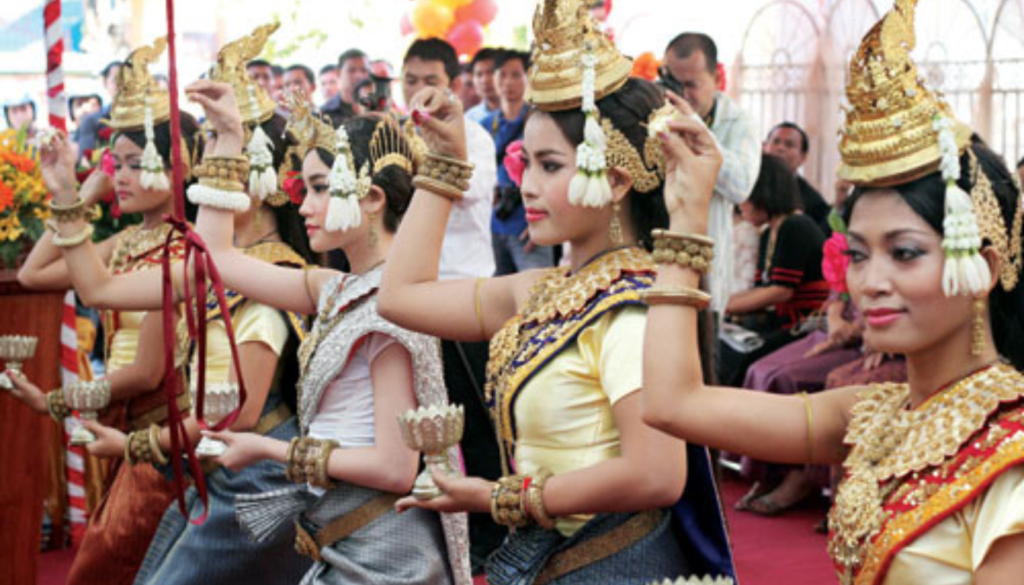
France is known for its deep cultural traditions passed down over years. These include the way people greet each other and the value they place on enjoying life. The French way of living mixes formality with a love for good conversation and beautiful things.
A special French custom is the greeting called “bises,” where people kiss each other’s cheeks. The number of kisses varies, but usually locals do two to four. This tradition shows how much the French value human connections, even sharing these kisses with close friends.
French people see eating as more than just a task. Children often eat like adults, which helps them develop good eating habits early. Eating, for the French, is about enjoying food and the company of others, making it a social event.
- At French weddings, everyone honks car horns on the way to the reception, showing joy.
- In Dunkirk, there’s a fun tradition where people throw large herrings into the crowd during a carnival.
- The release of Beaujolais nouveau wine in November is a big event, with people rushing to stores to get a bottle.
French culture also has unique rules about personal space and sitting at dinner tables. The French stand closer than the British in conversations, keeping only about a foot of space. They avoid having 13 people at a table due to a superstition about the Last Supper.
“The French love to argue about most topics, except money, religion, and France’s place in the world.”
Religion is essential to many in France, but not to everyone. Surprisingly, many in the country are non-religious. This mix of beliefs shows the varied and interesting nature of French culture. It is both traditional and changing over time.
In France, cultural practices like the “bises” and love for food shape daily life. By learning about and joining in with these customs, people can understand and enjoy France more. This way of life is what makes France so unique and interesting to explore.
France's Cultural Differences in Paris vs Other Regions

Paris serves as France’s cultural heart. It’s known for its vibrant, fast life and unique customs. Yet, each region in France has its own special traditions and lifestyle. These differences add to the rich cultural mix and make France a charming place to visit.
Parisian Lifestyle
The Parisian way of life has a special tempo. It’s all about style, art, and eating well. In Paris, you greet people with a kiss on each cheek. This is different from other places in France, where you might share more kisses.
Another unique aspect in Paris is the 35-hour work week. This leads to stores being closed on Sundays. It contrasts with the city’s usual busy vibe. Parisians value dressing smartly, enjoying fine art, and eating good food.
The city’s transport system is vast, covering most of the city and its surroundings. But, the network of metro lines can be confusing at first. Learning to get around can take time.
Parisians are known for their quiet demeanor in public. They enjoy their lunch breaks as a time to relax with loved ones or work friends. These small behaviors add to Paris’s charm. But they can seem strange to outsiders.
“In Paris, households typically have limited hot water, with men expected to take 3-5 minute showers and women allotted 10 minutes, which is influenced by the availability of hot water.”
To truly understand French culture, exploring beyond Paris is key. The country’s diversity is seen in its different lifestyles and customs. From Paris’s elegance to rural France’s laid-back vibe, each part of the country tells its own unique story.
Regional Diversity of France
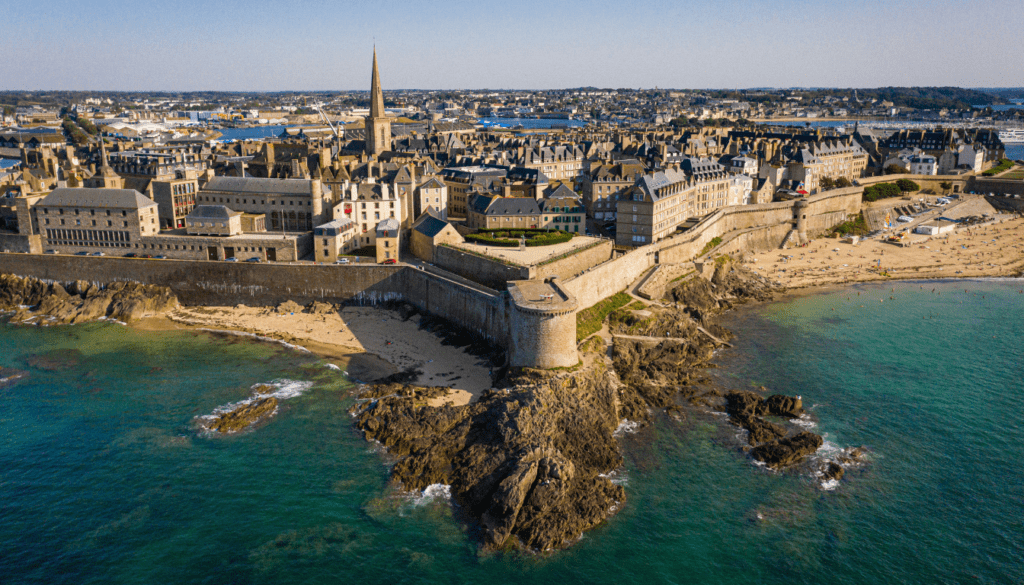
France is known for its various regions, each with its own culture and language. For example, Brittany has strong Celtic roots and Provence shows Mediterranean influence. This diversity helps us see the myriad aspects of French culture and identity.
Culture Facts
Aside from French, many other languages are spoken in France, like Alsatian and Corsican. These languages come from France’s history of immigration, including from former colonies. They enrich the country’s cultural mix.
In the past, the Huguenots brought new cultural elements to France. Today, big cities like Paris attract people from all over the world. Places like Marseille and Lille also have their own unique cultural combinations.
France is working to fight discrimination and promote understanding of different cultures. This includes programs in schools that teach about tolerance and the importance of accepting cultural differences. These efforts show how France is becoming more diverse and inclusive.
| Region | Cultural Highlights |
|---|---|
| Nouvelle-Aquitaine | Offers 250 kilometers of beaches. |
| Burgundy Franche-Comté | Renowned for its vineyards. |
| Corsica | Boasts heavenly seabeds and hiking trails. |
| Île de France | Described as the cultural and political heart of France. |
| Grand Est | Was the scene of major battles during the First World War. |
| Occitanie | Known for its wide variety of landscapes and activities. |
| Provence-Alpes-Côte d’Azur | Features fields of Provencal lavender and rocky creeks. |
| Pays de la Loire | Has long beaches and islands swept by ocean spray. |
| Normandy | Offers wooded countryside, cows, and steeples. |
| Centre-Val-de-Loire | Is the cradle of the French Renaissance. |
| Guadeloupe | Offers dream landscapes, good living, and amazing spots. |
| Guiana | Described as a piece of nature where the Amazon forest bursts out upon the ocean. |
| Reunion Island | Showcases a mix of Tamil, Indian, Chinese, Malagasy, Creole, and French cultures. |
France’s variety is seen in its regions, from the coast of Brittany to the lavender fields in Provence. Cities like Paris and Marseille add to the country’s rich cultural tapestry. Exploring France is like diving into a story with many chapters.
“Around half of France spoke French at the time of the French Revolution, with the rest speaking different dialects like Breton, Occitan, Basque, and Flemish.”
Comparing US and French Cultures

The United States and France are big players on the world stage. They have both similarities and differences in their cultures. This makes exploring their social habits, like how they act at work, interesting. It shows us what makes each society special.
Social Etiquette
The way people act socially is very different in France and the US. French people often follow strict rules and show respect in their conversations. On the other hand, Americans are more laid-back and treat everyone as equals.
Work-Life Balance
In France, time off work is taken very seriously. Workers there get about 30 days of paid vacation every year. But, America doesn’t require companies to give paid vacation. This means Americans may work more and have less time for leisure.
Furthermore, getting a university education is cheaper in many parts of the EU than in the US. For example, an undergrad degree can cost about €200 a year. This big price difference influences how education is valued in each society and shapes their cultural norms.
| Attribute | United States | France |
|---|---|---|
| Paid Vacation Days | No mandatory paid vacation days | Around 30 paid vacation days per year |
| University Education Cost | Average annual cost of $43,000 | Around €200 per year for an undergraduate degree |
| Tipping Culture | Tipping is common and expected in various service industries | Tipping is not as widespread, with no expectation for tipping in certain situations like taxi rides |
| Smoking Prevalence | Lower smoking rates among the population | Higher smoking rates, with more prevalent second-hand smoke exposure |
| Lunchtime Customs | Eating at one’s desk while working is more common | Colleagues often gather for a shared meal during lunchtime |
Learning about these differences helps us interact better with people from the US and France. It makes us more aware and understanding in these cross-cultural situations.
French Culture in Canada
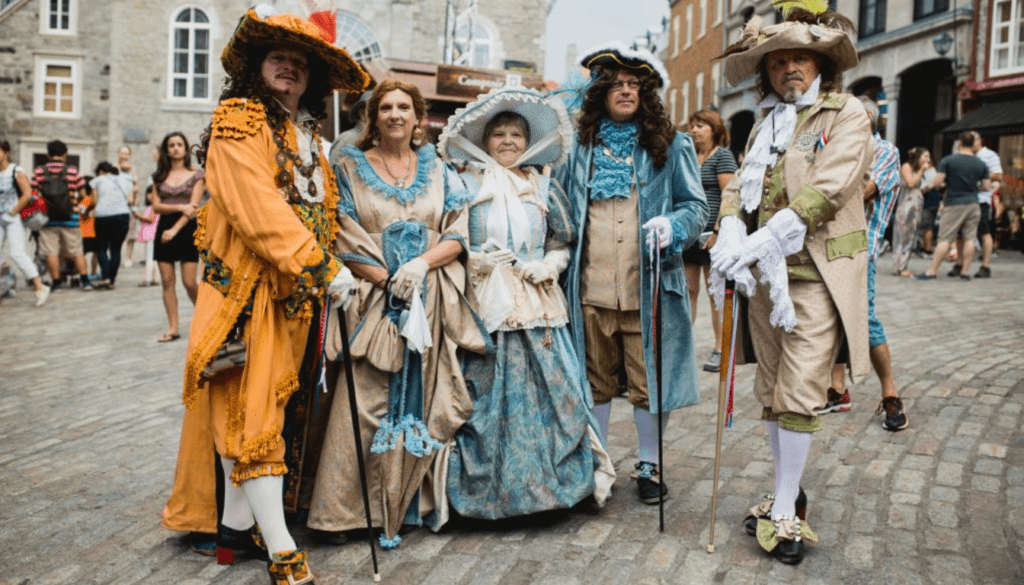
French culture remains strong in Canada, especially in Quebec. It shows how France’s influence has lasted. The French-Canadian culture mixes French and North American elements. It has a rich arts scene, a unique language, and a strong cultural identity.
Historical Background
In the early 17th century, the French started settling in Canada. They founded places like Quebec City in 1608. French Canadians, or Québécois, have deeply influenced Canada’s culture. Québec City is fully French-speaking, making it great for learning French.
Contemporary French-Canadian Culture
Today, French-Canadian culture is vibrant with its arts, language, and identity. The Québec City area has many places showing its French culture. Examples include Maison de la littérature and Espace Félix-Leclerc. Events and festivals celebrate the French heritage, such as the New France Festival.
The culture also shines in Quebec’s food, which blends French classics with local flavors. The Official Languages Act of 1969 made English and French Canada’s official languages. This act shows the important place of French culture in Canada.
“The French-Canadian culture is a unique and vibrant part of Canada’s diverse heritage, connecting the nation to its European roots while embracing North American influences.”
French culture has left a long-lasting mark on Canada. The French-Canadian people keep their traditions alive. Their culture is a key part of Canada’s diverse heritage.
'L'art de vivre à la française' - French Way of Life

The French way of life, better known as “l’art de vivre à la française,” is about enjoying the moment and life’s joys. With its world-famous food, wine, fashion, and art, France stands out for its unique cultural flair. This includes the French people’s deep love for high living standards.
Time and Enjoyment
The essence of French life is valuing “time and enjoyment.” The French are famous for savoring meals, drinks, and spending time with loved ones. They enjoy life and work-life balance with long vacations and relaxing mornings. Sleeping in, known as “Faire la Grasse Matinée,” shows their love for leisure and pleasure in simple things.
Debate and Protest
Besides enjoying good living, the French also value sharing ideas and engaging in debates, from politics to philosophy. They are passionate about discussing ideas and stand up for what they believe, even taking to the streets. This strong stance on their beliefs shows their commitment to improving society.
The French lifestyle, or “l’art de vivre à la française,” is admired worldwide. It’s not just about enjoying good food. It’s also about lively discussions and standing up for beliefs. The French truly embrace the present and live life to its fullest.
“The French way of life is not just about indulging in the finer things, but also about engaging in the free and lively exchange of ideas. It’s a culture that values both the pleasures of the senses and the pleasures of the mind.”
| Aspect of French Way of Life | Significance |
|---|---|
| Cuisine | France is recognized by UNESCO as the capital of cuisine, highlighting the significance of French gastronomy on a global scale. |
| Pastries | French culture places a high emphasis on pastries, with iconic creations such as the croissant, pain au chocolat, macaron, madeleine, and éclair, reflecting the country’s rich culinary heritage. |
| Fashion | The French fashion industry has been influential worldwide for over three centuries, characterized by luxury brands like Chanel and a reputation for craftsmanship and quality in both high-end and artisanal fashion. |
| Architecture | French architecture encompasses diverse styles, including Colombage, Bastide, Chalets, Charentais, gothic, Roman, medieval, baroque, neoclassicism, Art Nouveau, Art Deco, and post-war styles, showcasing the country’s architectural diversity and historical significance. |
The French way of life, or l’art de vivre à la française, is a treasure of French culture. It captivates people from all over with its celebration of food, wine, and lively discussions. Living the French way means valuing the now and enjoying every moment.
Exploring French-inspired food, architecture, and engaging in cultural debates offers a unique insight. It shows a profound and inspiring way of life. The French way is indeed a rich and deeply enjoyable experience.
Romance, Literature, and History
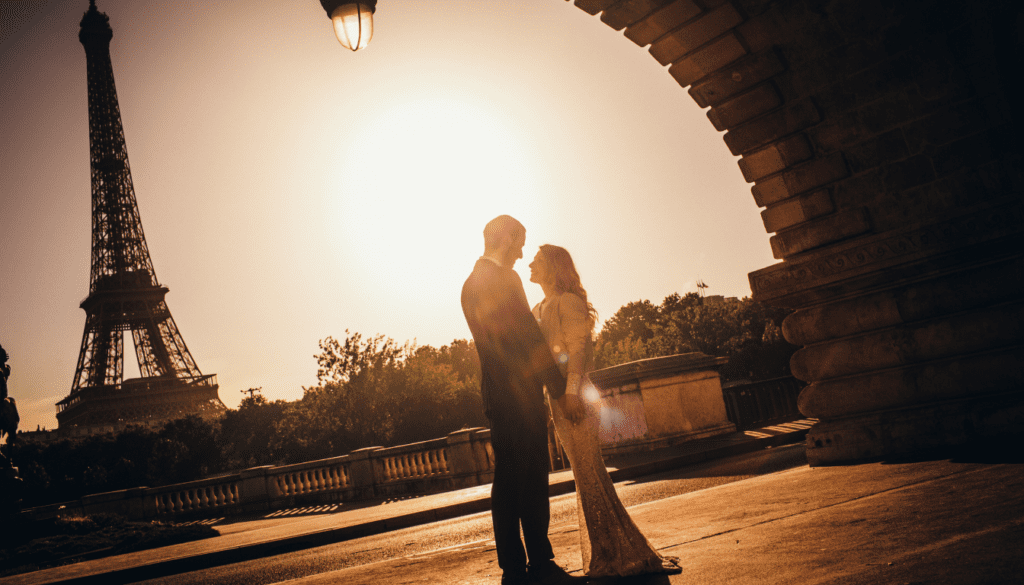
France is famous for its rich culture that blends French romance, French literature, and French history. In 2019, about 82 million people traveled there, drawn by its romance. The French language, spoken by 274 million worldwide, adds to its charm.
France is known for its great food, with Paris having over 300 Michelin-starred restaurants. This food, along with beautiful landscapes, is in places like the romantic region of Provence, which has more than 450 wineries.
French literature reflects the country’s cultural identity. It started with l’amour courtois in the medieval period. In the 16th century, French art celebrated love and desire with painters like François Boucher and Jean-Honoré Fragonard.
“French literature has enjoyed an exceptional position in European intellectual life since the Middle Ages.”
Then, in the 18th century, the novel “Les liaisons dangereuses” by Pierre Choderlos de Laclos intrigued readers with its love triangle. French literature often shows reason and wit, seen in works by Descartes, Racine, and Voltaire.
In the 19th century, French writers made the novel popular, making France a center for European culture. Even though French is less internationally used now, it’s important for creative works in countries like Switzerland, Belgium, Canada, and France’s ex-colonies.
French romance, literature, and history still captivate the world. France remains a hub of culture, blending passion, intellect, and charm.
Language and Education
France is known for its deep cultural roots. Its language, French, is widely spoken. But beyond French, you find many other dialects. These include Provençal in the south and Picard in the north. Each dialect adds layers to the French language’s rich history.
Regional Dialects
In France, regional dialects bring both pride and debate. The country has dialects like Alsatian and Breton not rooted in Roman languages. Others like Picard and Basque branched from French. These dialects show France’s varied local cultures and strong local identities.
L'Académie Française and the Verlan
The Académie Française aims to keep French pure. Since 1635, it has worked to keep the language elegant and consistent. Yet, French people also enjoy “verlan”, where syllables are flipped. This reflects a fun way to play with language and authority.
Formalism
France values formality in its language and society. The formal “vous” is often used instead of “tu”, even with friends. This formality is also seen in schools. French education is known for being strict and intellectually challenging. It encourages students to think critically.
| Statistic | Value |
|---|---|
| French education system compulsory from age 6 since 1882 | Fact |
| School leaving age in France has been 16 since 1959 | Fact |
| Preschool education begins at age 3 in France | Fact |
| School system in France is secular and free-of-charge | Fact |
| Baccalaureate (Bac) exam pass rate averaged 88.3% in 2018 | Statistic |
France’s education system values discipline and excellence. It has shaped great thinkers and artists. The focus on language and academic rigor is key to France’s intellectual leadership.
French Values
French culture is all about freedom, fairness, and brotherhood. At its core is the motto “liberty, equality, fraternity.” These aren’t just words; they guide how the French live and think. They believe strongly in fair treatment for everyone and stand up for what’s right.
The French are known for their protests when they see something unfair. This fight for fairness is seen in their laws and politics. It shows how much they value their way of life and their culture.
- The French population stands at over 65 million as of 2019, with a diverse religious landscape that includes Roman Catholics (83%-88%), Protestants (2%), Jews (1%), Muslims (5%-10%), and the unaffiliated (4%).
- French is the official language, spoken by 88% of the population, with other regional languages like German dialects, Flemish, Italian, Basque, Catalan, Breton, Occitan, Corsu, Arabic, and Antillean Creole also finding a presence.
- France is renowned for its refined cuisine, with the country boasting 27 Michelin-starred restaurants, tying it with Japan as the most highly rated in the world.
The values of liberty, equality, and fraternity have shaped France for a long time. They show what it means to be French and influence the whole world. These values make the country strong and inspire others.
“Liberté, Égalité, Fraternité” – The French National Motto
French people hold their values close, shaping their culture and society. These values of liberty, equality, and fraternity are more than ideals. They are part of everyday life in France. As the world changes, France keeps these values alive, showing everyone their importance.
Conclusion
France’s culture, filled with rich heritage and diverse traditions, has amazed people worldwide for ages. The grand landmarks of Paris and the tasty dishes from various regions show off the pride and character of its citizens. Learning about French language, art, and literature lets us truly understand what living in France is all about.
If you’re thinking of visiting or just want to feel French, this guide has given you a snapshot of their lively culture. You’ve seen how the French language and traditions, protected by the Académie Française, still matter today. Not forgetting the famous French fashion and food, France’s influence on global culture is huge.
My time traveling through France’s different parts and cultures has shown me the French people’s deep spirit. They work hard to keep their unique culture alive, mixing it with modern life. The French way of life, “l’art de vivre à la française,” truly highlights how culture shapes our values and outlook on life.
FAQ
What is the significance of the French language in French culture and identity?
The French language is not just a way to talk for the French. It’s a key part of who they are. It’s a symbol of their rich history and national pride. You can see this in how they teach it everywhere, from schools to ads.
French is more than words; it shows their country’s strength and smartness over the years. It tells of their cultural power and the importance of their past.
How does France work to safeguard the purity of the French language?
France works hard to keep their language pure. They use strict rules in schools and make sure French is used a lot in media. The Académie Française, made in 1635, fights to keep the language correct and clear.
They work in France and other places to keep the French language alive. This is a big effort to protect their culture.
How has French language and culture influenced the world?
French is a big deal around the world, not just in France. Lots of countries speak it, and it’s used in global groups like the UN. This makes it a key language for sharing ideas and understanding different cultures.
In a world where talking is so important, French is more than just words. It’s a way to share the historical might and ongoing influence of France. It’s like a cultural ambassador to the world.
What are some of the key traditions and customs that have shaped French culture?
France’s rich history comes from many different cultures. This has made French culture a mix of many traditions. From the Romans to the Vikings and more, each group left its mark.
The French are also influenced by the Jewish community. This is clear in their important areas like literature and food.
What are some of the major festivals and celebrations in France?
Bastille Day is a big deal in France, much like the 4th of July in the US. It has parties and fireworks. The Cannes Film Festival in the south of France is a big event for movies.
It’s filled with stars and shows the best films. The Tour de France is a long bike race that brings everyone together to cheer. The lights in Lyon during December create a magical scene. It’s a tradition that continues today, no matter where you are in the world.
The Festival d’Avignon is known for its performances and art. It happens in a historical city in the south of France. Since 1947, it has been attracting art lovers from around the world.
What makes French cuisine so renowned worldwide?
French food is more than meals; it’s a part of their culture and history. It has roots that go back a long time and has been refined over the years. French cooking is known for using the best ingredients and methods.
It’s also famous around the world, shaping how we think about food. The love for food and cooking is at the heart of French culture.
How has France influenced the world of fashion and art?
France is a leader in fashion and art. Its rich culture and traditions lead the way in global style. From Paris’s fashion houses to art across the country, France has a big impact.
It’s always setting new trends and discussing art. France has a significant role in creating what’s considered stylish and artistic around the world.
What are the key aspects of French culture and customs?
French culture is about history and traditions. They value polite behavior and have their own set of social rules. Life in France reflects their love for art, good food, and spending quality time with loved ones.
It’s a culture filled with beauty and charm.
How do the cultural differences between Paris and other regions in France shape the overall cultural landscape?
France is more than just Paris. Each region has its own unique culture and pace of life. Paris is known for its fast and fashionable life. This is very different from the slower, more traditional life in other areas.
Understanding these differences helps us see the full picture of French culture.
What are the key differences between French and American cultures?
France and the US have both similar and different cultural traits. The French focus on being polite and have a more formal way of talking. Americans are more casual in their conversations.
Work-life balance is also seen differently in France and the US. The French put more importance on family time and enjoying leisure.
How has French culture influenced the culture of Canada, particularly in the province of Quebec?
French culture is a big part of Canada, especially in Quebec. It shows the lasting impact of France in Canada. The French-Canadian culture mixes French and North American elements.
Now, it has its own strong identity, with unique language and cultural practices.
What is the essence of the “French way of life” and how does it shape the cultural identity of the French people?
The “French way of life” is all about enjoying the best parts of life. It values great food, wine, and time with family. This lifestyle is famous worldwide.
France is also known for its intellectual debates and love for discussing big ideas. This spirit is a key part of being French.
How do the themes of romance, literature, and history intertwine with French culture?
France is famous for love, from its poets to its artists. This is seen in its passionate literature and history. French culture is rich with stories of romance and royalty.
Its literature and philosophy have influenced the world. They continue to be a big part of what makes French culture so special today.
What is the role of the French language in the country’s cultural identity and education system?
French is the heart of France’s cultural identity and education. The Académie Française works to keep the language pure and correct. It also looks after the French language everywhere it’s spoken.
There’s also a fun side to French with its slang, like “verlan.” French culture values using the language well in formal and social situations.
What are the core values that define French culture and identity?
French culture is built on key values like liberty, equality, and fraternity. These are more than words; they shape how the French live. This influence is seen in their strong beliefs in social justice and treating everyone equally.
The French stand up for their beliefs and are not afraid to voice their opinions. These values are at the heart of being French.





















